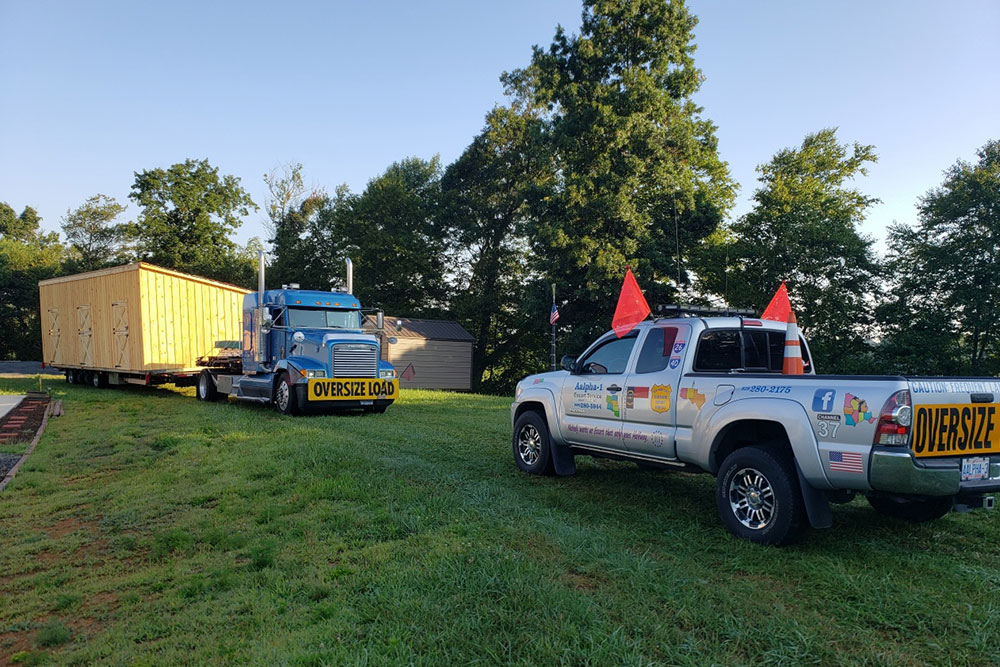As the fall season rolls around, pilot cars play a crucial role in ensuring safe and efficient transportation of oversize loads on North American roadways. Pilot car drivers, also known as escort vehicle drivers, assist in guiding oversized vehicles through challenging routes, alerting other drivers, and ensuring compliance with regulations. If you are interested in becoming a pilot car operator for fall operations in the United States and Canada, it is essential to understand the licensing requirements involved. Let’s delve into the specific requirements for pilot car operations in these two countries.
Licensing Requirements in the United States
1. Driver’s License
To operate as a pilot car driver in the United States, you must possess a valid driver’s license issued by the state in which you reside. The type of driver’s license required may vary depending on the state, so it is essential to check with the Department of Motor Vehicles (DMV) in your state for specific requirements.
2. Pilot Car Certification
Many states require pilot car operators to complete a certification program to ensure they have the necessary knowledge and skills to safely escort oversize loads. Certification programs typically cover topics such as traffic control, communication procedures, road regulations, and safety protocols.
3. Insurance
Pilot car operators are often required to carry liability insurance to cover any potential damages or accidents that may occur during escort operations. It is important to verify the minimum insurance requirements in the states where you plan to operate as a pilot car driver.
4. Vehicle Requirements
Pilot cars must meet specific vehicle requirements, including proper signage, flashing lights, and communication equipment. Additionally, pilot cars are typically required to have a valid state inspection and registration.
5. Understanding State Regulations
Each state in the U.S. has its own set of regulations governing pilot car operations. It is crucial for pilot car operators to familiarize themselves with the specific requirements in each state where they plan to provide escort services.
Licensing Requirements in Canada
1. Driver’s License
In Canada, pilot car operators must hold a valid driver’s license issued by the province or territory in which they reside. The type of driver’s license required may vary by jurisdiction, so it is important to check with the local licensing authority for specific requirements.
2. Pilot Car Certification
Similar to the United States, many provinces in Canada require pilot car operators to complete a certification program to ensure they have the necessary skills and knowledge to safely escort oversize loads. Certification programs cover topics such as traffic management, route planning, and emergency procedures.
3. Commercial Vehicle Operator’s Registration (CVOR)
In some Canadian provinces, pilot car operators may be required to obtain a Commercial Vehicle Operator’s Registration (CVOR) to legally operate as an escort vehicle driver. The CVOR helps ensure that commercial vehicles, including pilot cars, meet safety standards and regulatory requirements.
4. Insurance
Pilot car operators in Canada are typically required to carry liability insurance to protect against potential risks and liabilities. It is essential to verify the minimum insurance coverage mandated by the province where you plan to operate.
5. Compliance with Provincial Regulations
Each province in Canada has its own regulations governing pilot car operations, including requirements related to vehicle equipment, signage, and operator conduct. It is crucial for pilot car operators to understand and comply with the regulations in the provinces where they provide escort services.
Final Thoughts
As fall approaches and the demand for pilot car services increases, understanding the licensing requirements for pilot car operations in the United States and Canada is essential for aspiring escort vehicle drivers. By obtaining the necessary certifications, licenses, insurance coverage, and understanding state or provincial regulations, pilot car operators can ensure compliance and contribute to safe and efficient transportation of oversize loads during the fall season.

